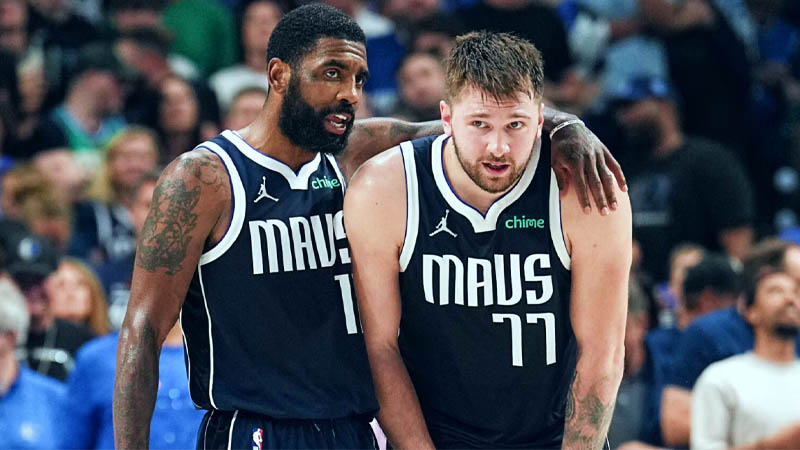By the end of the first quarter in Game 5 of the Western Conference finals, the atmosphere at the Target Center had notably shifted. The Dallas Mavericks, led by Luka Dončić’s explosive performance, had already secured a commanding double-digit lead. Dončić, who was seemingly unstoppable, was “on pace for 80 points,” setting the tone for what would become a night of dominance.
The Minnesota Timberwolves, having narrowly escaped elimination just two days prior, found themselves outmatched and overwhelmed. By halftime, the scoreboard read a lopsided 69-40 in favor of Dallas, signaling an early end to Minnesota’s playoff aspirations. Ultimately, the Mavericks clinched a decisive 124-103 victory, propelling them to their first NBA Finals appearance since their 2011 championship win. They are set to face the Boston Celtics, with the series opener scheduled for next Thursday in Boston.
Dončić, the architect of the Mavericks’ triumph, finished the night with a stellar 36 points, shooting 14-of-22 from the field, along with 10 rebounds, five assists, and two steals. His remarkable performance throughout the series earned him MVP honors, having averaged 32.4 points over five games. His 20 points in the first quarter alone were pivotal in establishing Dallas’s early lead, which only widened as the game progressed, via ESPN.
In a display of sheer dominance, the Mavericks continued to outplay the Timberwolves in every quarter. Notably, Mavericks rookie Dereck Lively II made his mark by setting an NBA record, shooting a perfect 16-of-16 from the field throughout the series.
For the Timberwolves, the loss marked more than just the end of their season. It highlighted the challenges that lie ahead in building a championship-contending team. Despite the promising talent of Anthony Edwards, who is under contract through 2029, the team faces critical decisions regarding its roster and financial strategy. The ownership dispute involving Glen Taylor, Alex Rodriguez, and Marc Lore looms large, with potential implications for the team’s payroll and future acquisitions.
As the offseason approaches, the Timberwolves must navigate these complexities and determine whether their current roster composition can truly contend for an NBA title. The possibility of trading key players like Karl-Anthony Towns or Rudy Gobert could be on the table as the team looks to make a significant splash in the league. As they reflect on their playoff run and look ahead to the future, the central question remains: how will the Timberwolves evolve to overcome this year’s shortcomings and build a winning team?


